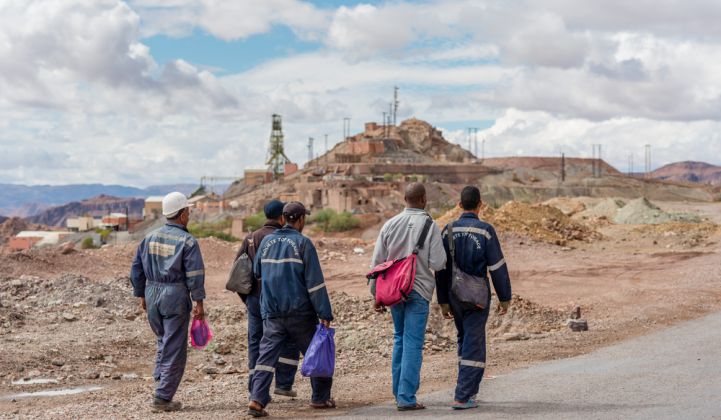Blockchain firms are racing to create ethical sourcing platforms for cobalt amid growing concerns over mining conditions in the lithium-ion battery supply chain.
This month, for example, Cobalt Blockchain and DLT Labs finalized a partnership first announced in April to produce ethically sourced cobalt from the Democratic Republic of the Congo (DRC).
Cobalt Blockchain, which holds export licenses for cobalt, copper, tin, tantalum and tungsten from the DRC, said in a press release that its Mintrax platform will provide “secure and transparent methods for tracking the provenance of metals and minerals.”
Mintrax is the first enterprise-grade blockchain platform that complies with the Organisation for Economic Co-Operation and Development’s due-diligence framework for the provenance of ethically sourced minerals, Cobalt Blockchain claimed.
But it is far from the only one tackling the problem of work conditions for artisanal miners in DRC, which Nikkei Asian Review last month reported could worsen as Chinese companies tighten their grip on the lithium-ion battery supply chain.
RCS Global, a London, U.K.-based company, is also developing a platform which, like Mintrax, is built on IBM's Hyperledger Fabric blockchain.
“The platform will be used to promote transparency and streamline compliance in the sourcing of cobalt and other minerals used in consumer products,” said Jonathan Ellermann, project director at RCS Global.
“Cobalt will be traced through the supply chain from the mine to the smelter, and then from the smelter to the retailer. There will be integration with existing systems under a shared user interface.”
The platform sounds very similar to Mintrax, which Cobalt Blockchain said would employ a transactional flow developed in collaboration with BetterChain, a Barcelona, Spain-based consortium encouraging responsible sourcing of minerals.
Meanwhile, another blockchain startup, Circulor, was said to be tackling a similar problem in March, working on behalf of carmaker BMW.
“Circulor is working on a pilot for BMW to map cobalt that is already assumed to be clean because it comes from jurisdictions such as Australia and Canada or from industrial production in Congo,” a Reuters report said.
The notion of using blockchain to improve ethical sourcing of battery materials dates back at least a year.
In June 2017, HumanityX, an initiative of Leiden University’s Centre for Innovation in the Netherlands, hosted a workshop with Fairphone, a smartphone supply chain body, to look into the use of blockchain technology for minerals tracing.
Today, the concept is not just being applied to materials from the DRC. The Australian rare-earth metals mining firm Hastings Technology Metals, for example, is looking to use blockchain technology for mine-to-market tracing at its Yangibana mine and processing plant in Western Australia.
Nevertheless, the real prize for blockchain companies would be to crack down on poor working conditions among artisanal miners in the DRC. “We decided we would attack this area because we know the industry, we know the geography and we know the challenges,” said Loudon Owen, chairman and CEO of DLT Labs. “We’re not doing it without pretty deep insight into how to achieve success.”
Regulating DRC mining conditions was particularly challenging, not just because of the country’s geopolitical issues but also because it is bigger than Western Europe, he said, and has borders with eight other countries.
The difficult nature of the market makes it easy for artisanal miners to be subjected to oppressive working conditions with little or no oversight. “The types of abuses we have seen range from terrible health and safety, to no health and safety, to extortion, to child labor,” said Owen. “A lot of [miners] end up dying because they work underground in very unsafe conditions.”
Caspar Rawles, a cobalt analyst with Benchmark Mineral Intelligence in London, said if ethically sourced material was acceptable to the industry then platforms such as Mintrax could contribute significant volumes to the supply chain.
“After reports and media stories regarding the human rights issues associated with artisanal mining in the region, there was a realization that the industry needed to work with the artisanal miners rather than try to stop sourcing this material, as it could lead to further issues,” he said.
“But it is still early days, and the reaction from the supply chain has yet to be seen," Rawles added.
--
Join us along with innovators from utilities, start-ups, investors and policymakers for Blockchain in Energy Forum on September 11 in San Francisco. Come learn more about what the future may hold for this technology.




